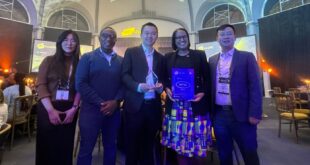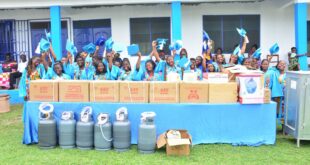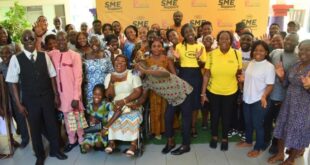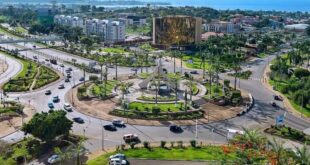Tamale, Ghana – Regional Advisory Information and Network Systems (RAINS), a Tamale-based non-profit nongovernmental organisation in partnership with African Biodiversity Network (ABN), has embarked on an initiative aimed at saving indigenous seeds from extinction.
Dubbed: “Seed Mapping Exercise”, the initiative is an activity under the Zero Hunger project seeking to empower farmers in five communities in the Savelugu Municipality to revive and enhance traditional seeds and agricultural knowledge systems through improved capacity to promote indigenous seeds for enhanced food security.
Before the advent of certified seeds from certified seed producers home and abroad, most smallholder farmers in Ghana used and still use indigenous seeds.
During the harvesting season, farmers carefully select the best of their harvested crops and pick their seeds for storage ahead of the next farming season.
But over the years, some of these indigenous seeds have been extinct from the system owing to several factors. Prominent among these factors is the introduction of certified seeds which mostly have shorter periods of maturity compared to most indigenous seeds.
With increasing shorter rainy seasons now, most farmers are afraid of losing out and so have decided to shift their focus to the planting of indigenous seeds so that they can harvest enough to feed their families.
The Seed Mapping Exercise according to RAINS Project Officer, Mohammed Kamel Damma, would also reignite the interest of farmers to plant more of the indigenous seeds so as to ensure the preservation of the different types of seeds in their communities.
“This initiative is seeking to assist Yizigu, Yiwogu, Yilikpani, Tindang and Langa to promote the use of indigenous seed varieties such as maize, rice, cow pea, sorghum and among others, and revive the long cherished traditional farming practices of the people.
“The significance of the Seed Mapping Exercise is to establish a platform for common understanding of the different seed varieties identified in the five communities through a participatory process. All available seed varieties in the communities will be identified and efforts made to document their cultural, spiritual and medicinal relevance”, he pointed out.
Mr. Damma said community members since the launch of the 3-year initiative, have been invited to dialogue sessions to highlight their collective knowledge of indigenous seeds present in their respective communities. “Silos would be kept in each of these communities to enable the people store the seeds for continuous planting in every farming season”, he noted.
Since its foundation in 1993, RAINS has focused on improving the quality of life particularly of children, women and girls in the Northern Region through education, economic empowerment and others.
By Savannahnewsonline.com/Philip Liebs
 Savannah News Online Reporting Only What Matters Most
Savannah News Online Reporting Only What Matters Most



